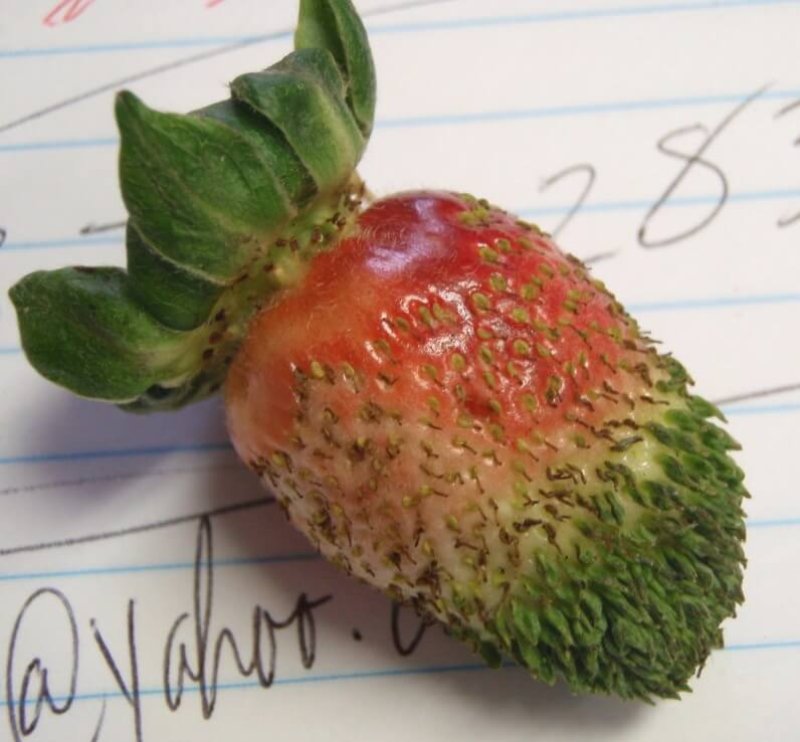Delectable strawberries are highly sought after — and not just by humans. Rodents, insects, fungi and bacteria all like to pig out on the crop. That’s why the strawberry industry is facing a major obstacle now that the most commonly used pesticide is being phased out, and why researchers have put in millions of dollars in the race to come up with an alternative.
Farmers have long used methyl bromide to treat strawberries. But scientists identified the chemical as a contributor to ozone depletion, and in response, the Environmental Protection Agency mandated that it be phased out in 2005. Every year since, growers have received extensions on the phaseout, but the EPA has suggested that exemptions will end after 2016.
That means industry leaders have a short amount of time to come up with an alternative, and so far, there hasn’t been much progress. Other pesticides have all been found to have negative health effects on humans or groundwater.
Scientists at the University of California-Davis are working on a genetic solution, by researching resistance to soil-borne diseases. Their greenhouse has more than 1,600 varieties of the fruit, and the hope is that they can sift through and find a gene that could make them stronger. That strategy could take a few years to accomplish, though.
“As more and more land enters organic production and chemical control options disappear, breeding and clever and more sustainable production practices will be critical to the survival of the industry,” said Steven Knapp, director of the UC-Davis Strawberry Breeding Program, in an e-mail. “Both are significant challenges.”
The GLP aggregated and excerpted this blog/article to reflect the diversity of news, opinion and analysis. Read full, original post: Strawberries are in big trouble. Scientists race to find solution.































